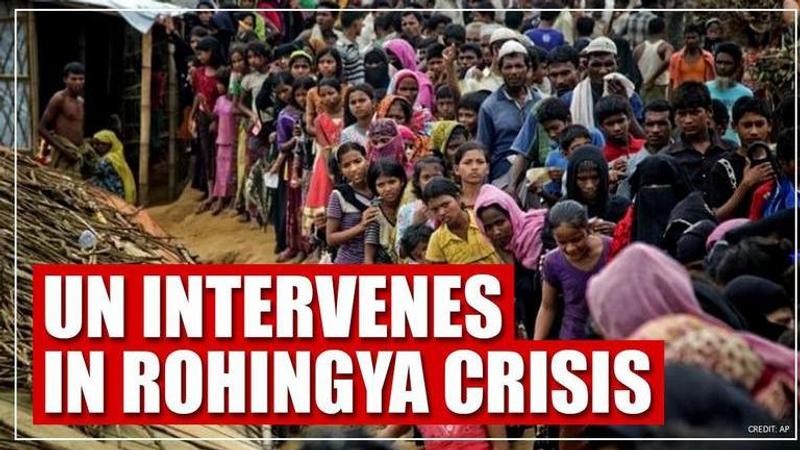Published 20:53 IST, January 10th 2020
United Nations files plea in SC on India's decision to deport Rohingyas
In a huge development, the UN rapporteur has filed a plea in SC claiming that deportation of Rohingyas is invalid as per international human rights law

In a huge development, the United Nations has intervened in the Central government's decision to deport Rohingyas. Moving to the Supreme Court on Friday, the UN rapporteur has filed a petition claiming that the deportation of Rohingyas is invalid as per international human rights law. The top court has sought a response from the Centre on the plea filed by the UN rapporteur. Earlier, in 2017, the central government had directed state authorities to identify and deport Rohingyas.
India, however, is not a signatory to 1951 UN Convention on Refugees or 1967 protocol which bars nations from expelling refugees. Nevertheless, there is an international law called non-refoulment that forbids a country receiving refugees from returning them to a country where they would be facing the danger of persecution based on "race, religion, nationality, membership of a particular social group or political opinion."
India orders to deport Rohingyas
The Indian government states that Rohingyas are illegal minorities and Union Minister Kiren Rijiju, back in 2018, had said in the Parliament that all illegal refugees including Rohingyas will be deported. Following this, the Supreme Court on September 2018, deferred a plea filed by two Rohingya refugees challenging Centre's decision to deport them. In October 2018, India first deported seven Rohingya men to Myanmar. Furthermore, in January, it deported a Rohingya family of five - its second deportation.
However, the Calcutta High Court, in the first week of this year, stayed the deportation of a Rohingya couple who had illegally entered India back in 2017 and was about to be deported. The bench had not only issued a stay order but also a notice to the Bengal Government to provide basic amenities to the couple to help them "live a life with dignity." The bench said that it was taking this decision to "uphold the spirit of humanity."
Who are Rohingyas?
Rohingyas are an ethnic minority in Myanmar residing in the Rakhine state of the country. While most of the Rohingyas are Muslims, very few are also Hindus. The Buddhist majority nation of Myanmar claims that Rohingyas are residents of Bangladesh and that some have formed insurgent groups like Arakan Rohingya Salvation Army. However, the Rohingyas claim they are citizens of Myanmar and have faced brutal repression from Myanmar's military, and have been denied citizenship.
UN on Rohingyas
As the Rohingyas crisis unfolded in 2017, the UN had called it "a textbook example of ethnic cleansing." UN human rights council High Commissioner Zeid Ra’ad Al Hussein had denounced the “brutal security operation” against the Rohingya in the Rakhine state of Myanmar. Back in 2019, the United Nations General Assembly had also passed a resolution strongly condemning rights abuses against Rohingya Muslims. In December last year, state counsellor Aung San Suu Kyi, appeared in the UN's top court and denied the charges that the military had attempted to exterminate Rohingyas. However, she admitted that the army may have used excessive force against Rohingya Muslims.
Rohingya Exodus
Nearly 7,40,000 Rohingya Muslims were forced to take refuge in several camps in Bangladesh after Myanmar’s military launched a crackdown on the minority group. The crackdown on minorities tarnished state counsellor Aung San Suu Kyi's global image, following which Amnesty International revoked its highest honour -- the Ambassador of Conscience Award that it had conferred in 2009. After Suu Kyi’s defence at the ICJ, the human rights organisation in a statement accused the leader of downplaying the severity of the crimes committed against the Rohingya Muslims. Suu Kyi has denied the genocide of Rohingyas and called it "lies".
Updated 22:22 IST, February 25th 2020




